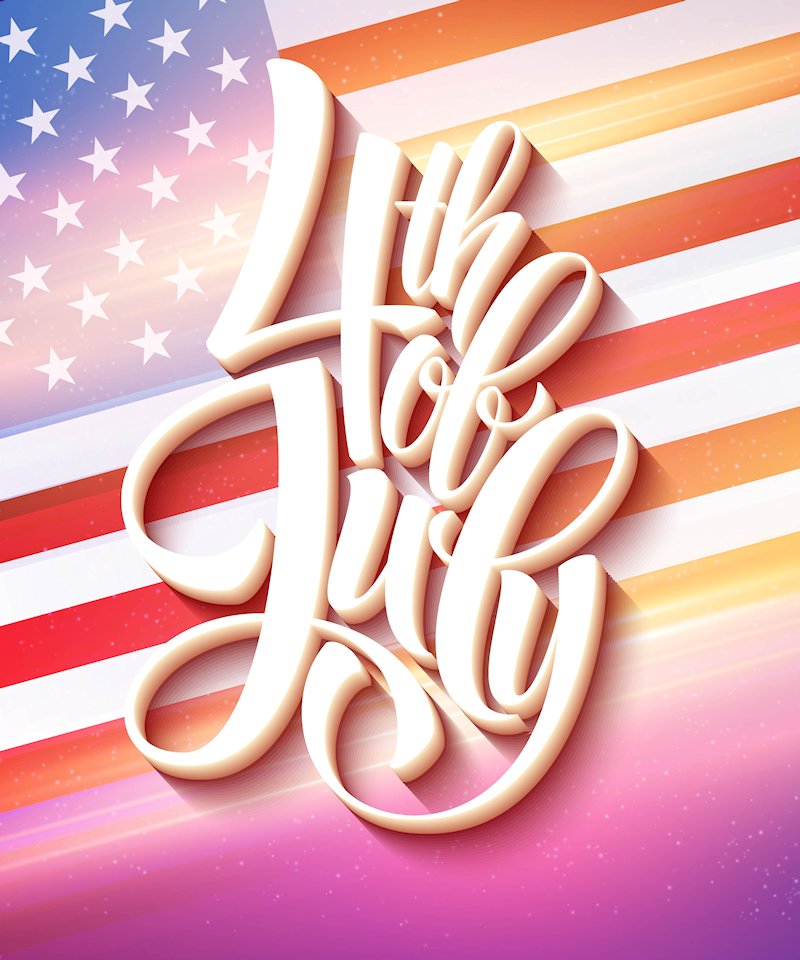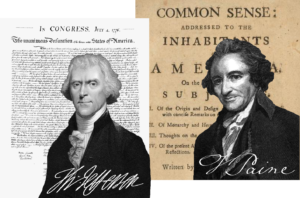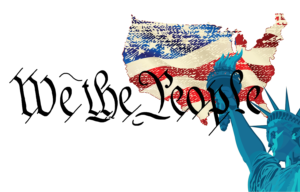For many people, this Independence Day celebration feels much more liberating than past holidays as pandemic restrictions are being cautiously lifted. The pandemic isn’t over; however, thanks to the millions of people who have been vaccinated, going out in public is much safer than a year ago. Independence Day commemorates the adoption of the Declaration of Independence on July 4, 1776 — a document declaring the American colonies’ independence from Great Britain. If you’re a historian, you might have started your celebration on Friday, 2 July. As the History Channel notes, “In June 1776, representatives of the 13 colonies then fighting in the revolutionary struggle weighed a resolution that would declare their independence from Great Britain. On July 2nd, the Continental Congress voted in favor of independence, and two days later its delegates adopted the Declaration of Independence, a historic document drafted by Thomas Jefferson. From 1776 until the present day, July 4th has been celebrated as the birth of American independence, with typical festivities ranging from fireworks, parades and concerts to more casual family gatherings and barbecues.”[1] According to the History Channel, John Adams foresaw great annual celebrations commemorating independence; however, he thought those celebrations should take place on the 2nd of July. Following the vote on the 2nd, “Adams wrote to his wife Abigail that July 2 ‘will be celebrated, by succeeding Generations, as the great anniversary Festival’ and that the celebration should include ‘Pomp and Parade … Games, Sports, Guns, Bells, Bonfires and Illuminations from one End of this Continent to the other.’”
Adams was extremely disappointed that his prediction failed to materialize and, as a result, he refused all invitations to take part in Fourth of July celebrations. His feelings may also have stemmed from the fact that his lifelong political rival, Thomas Jefferson, received more credit than him and other members of the committee who helped draft the Declaration of Independence. Other members of the committee included Roger Sherman of Connecticut, Benjamin Franklin of Pennsylvania, and Robert R. Livingston of New York. Adams may have also thought the Fourth of July was inappropriate because, even though that is the date on the Declaration, it wasn’t formally signed until 2 August 1776. Ironically, Adams and Jefferson both died on 4 July 1826. Although Adams was correct that the vote for independence was momentous, the Declaration of Independence embodied more than that vote. The staff at the National Archives explains, “It also represents the core of our beliefs, the very makeup of our identity as citizens of the U.S.”[2]
Philadelphia is credited for holding the first celebration on the Fourth of July in 1777; however, Massachusetts was officially the first state to make July 4th a holiday in 1781. Independence Day only became a Federal Holiday in 1870, nearly a hundred years after American colonists declared independence. A couple of years ago, the editorial team at The Mining Journal wrote:
“Americans have been celebrating Independence Day for years, and, like Christmas, sometimes the true meaning gets lost in all the hoopla. That hoopla, such as fireworks, parades and cookouts, represents a good time for families and communities. That’s fine. They are a fun way for people to get together and have fun, hopefully in a safe manner. But Independence Day means more than sparklers, just as Christmas means more than presents under the tree. It represents people’s efforts to earn and keep freedom, and that’s a struggle that continues to this day. Sometimes the struggles are big, such as the ongoing civil rights movement. Others are smaller and more personal in nature, and just about everybody probably has a story to tell on that front. However, a nation gaining independence from another nation is pretty big. The quest for freedom is noted on other national holidays, such as Memorial Day and Veterans Day. Independence Day stands out more, though, because it’s more festive and less contemplative in nature. Again, we love a fireworks display and a July 4 parade, with its decorated floats, marching bands and U.S. flags. But people should remember all the sacrifices that went into the celebration, and those sacrifices, in some way or another, continue.”[3]
A few years ago, Doug Struck (@dougstruck), a freelance journalist, explained that patriotism is not easily explained.[4] He wrote, “As an increasingly riven country chooses up tribal sides, patriotism is being used as a litmus test, but Americans can’t agree on what color passes. National Football League (NFL) players who knelt during the national anthem were accused of not being patriots. They insist their protest was exactly what patriotism requires. Politicians, especially on the national level, find they cannot run for office without wearing a lapel pin of the flag boasting of their patriotism. … Park statues are torn down — or defended — and streets and buildings renamed in disputes over which patriotic symbols should represent the United States. Some Americans remain firm in their certainty of what — or who — is patriotic. … Others admit they struggle with the issue.” That lesson was driven home this past January when seditionists, posing as patriots, stormed the capitol building, caused significant damage to the building and its contents, inflicted casualties on law enforcement officers, and threatened duly-elected officials carrying out their duties. That terrible scene reminds us that democracy and the liberties true patriots should embrace are fragile. Our future as a democratic nation is not guaranteed.
A fairly well-known adage — the only thing necessary for the triumph of evil is for good men to do nothing — is actually a paraphrase of an 1867 address given by philosopher John Stuart Millat the University of St. Andrews. In that speech, he stated, “Let not any one pacify his conscience by the delusion that he can do no harm if he takes no part, and forms no opinion. Bad men need nothing more to compass their ends, than that good men should look on and do nothing. He is not a good man who, without a protest, allows wrong to be committed in his name, and with the means which he helps to supply, because he will not trouble himself to use his mind on the subject.” Unfortunately, in today’s political morass, who is viewed as good and who is viewed as bad too often depends on which side of the political aisle you sit. A good place to start, however, is by confirming that good men and women — real patriots — are those who fight to uphold the words found in the Declaration of Independence “we hold these truths to be self-evident, that all men are created equal.” Have a great (and safe) Independence Day celebration.
Footnotes
[1] “July 4th,” History Channel.
[2] National Archives Staff, “Why Do We Celebrate Independence Day?” Military.com.
[3] Editorial Staff, “Always keep in mind true meaning of Independence Day,” The Mining Journal, 3 July 2019.
[4] Doug Struck, “As Americans celebrate Independence Day, what does it mean to be a patriot?” The Christian Science Monitor, 2 July 2018.





